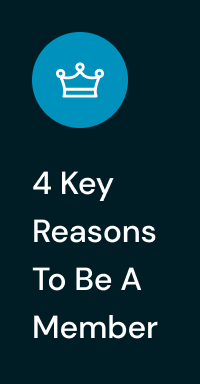
How to choose a great managed fund
Article by Daryl Wilson, CEO/Portfolio Manager at Affluence Funds Management, first published in Equity, February 2017
There are now over 10,000 Australian managed funds available. Through them, you can access thousands of different managers and almost all asset classes, geographies and investment strategies.
We spend a lot of time looking for the best Managed Funds. Here’s some of the things we have consistently found to be most important.
Define what you’re looking for
Start by thinking about what you want from a managed fund. What will it invest in? How will it compliment the other investments in your portfolio? For example, you may hold a lot of blue chip shares directly, but look to a managed fund to get access to smaller companies. The more you define what you want, the easier it might be to narrow down a short-list of opportunities.
There’s lots of information available
Many investors get overwhelmed by the choice available. One tool commonly used to identify and sift opportunities is Morningstar’s Fund Screener. Other good ways to source ideas include financial media such as the AFR and the Australian (which regularly profile up-and-coming managers) and websites such as Livewire Markets, where many different fund managers contribute content and ideas. We supplement these sources with paid services to data providers such as Australian Fund Monitors.
Understand how a Fund works
The PDS or other disclosure document for a Fund will contain key information about how the Fund works and what it invests in. You should read it thoroughly. In addition, we find it useful to also read fund manager reports or other correspondence to investors. This can help to understand how the manager thinks and their investment style.
Assessing Fund Manager Performance
It is said that historical performance is no guide to the future. While that is true – historical performance can be a great indicator of the potential for future performance, provided it is looked at in the right way.
Fund performance should be assessed on an annualised basis, after all fees to the manager and costs, but before tax. Most fund managers publish this data. This result should be compared to an appropriate benchmark, to assess whether the manager has added any value.
Good managers do have bad periods and asset prices move in cycles, so you should never assume the last 1 or 2 years’ performance will be repeated. Your aim is to understand how well the manager has performed, relative to the market they are investing in.
Fund Size
One of the biggest myths is that larger funds and managers produce better results. We find the reality is that the exact opposite is often true. Some of the best managers have relatively small amounts of money under management. Their smaller size provides more investment opportunities, greater specialisation and the ability to be more nimble in executing buy and sell decisions.
The Fund Manager
It takes a certain type of personality to manage money well. It’s always good to be able to meet the Fund Manager in person if you can. Great fund managers are quite often quiet and introverted. Other attributes we commonly see are humility, honestly, passion and consistency.
We also want to know that a good fund manager believes in the strategy and is going to be around for the long term. For this reason, we like to see fund managers have substantial personal holdings in the Fund and the management company.
Just do it
When we find a Fund we really like, we usually invest a small amount initially and gradually increase the allocation over time. A small investment encourages the discipline of regularly monitoring the manager, whilst building up your understanding of how they invest.
Things that don’t matter that much
We believe some things matter a lot less than most people think. Distribution yields have virtually no impact on investment performance. Boards/Directors/Management Companies are not that important (the fund managers are the key individuals). And while it’s true that most managed funds charge higher fees than they deserve, very few great fund managers charge very low fees. So don’t limit yourself to only looking at low fee funds.
Summary
Like all investments, it’s best to do your homework before buying any Managed Fund. Try to buy only quality funds with proven managers who have performed well. Buy into Funds holding assets you like and using an investment strategy you understand, with an appropriate structure in place.

